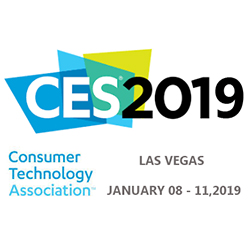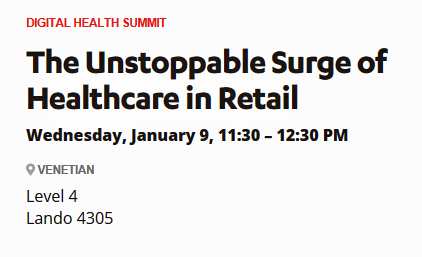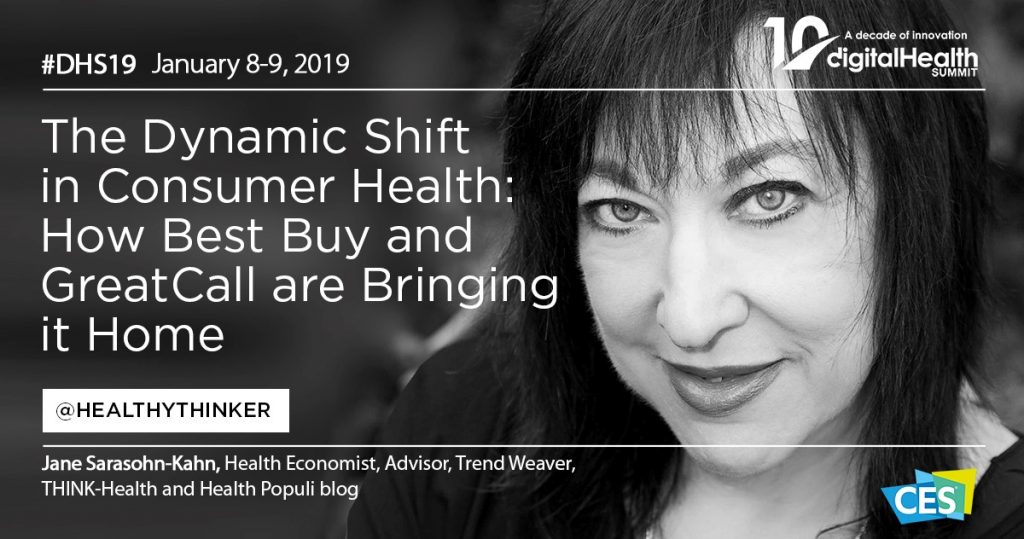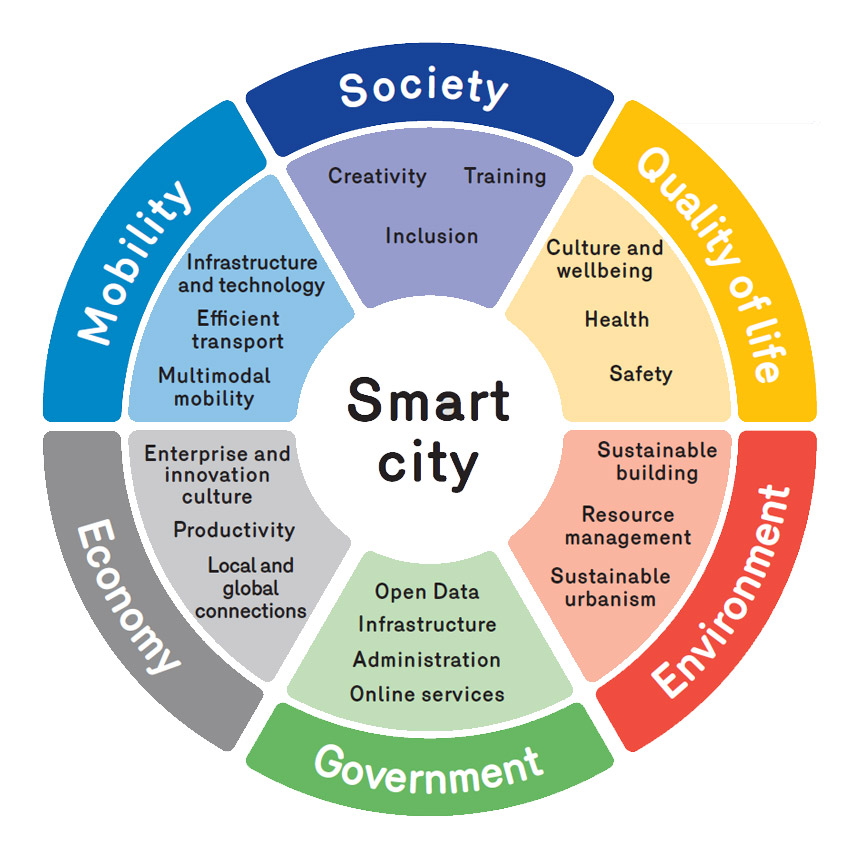If I’m going to spend a week someplace, it usually has to be Italy. So next week in Las Vegas, I’ll deal with that bias by staying at the Venetian Hotel for the entire week to cover all-things-health at CES 2019, the annual convening of electronics retailers and enthusiasts. Most of the 180,000+ folks come to Vegas from over 150 countries to kick the proverbial tires on TVs, autos, games, virtual reality, 3-D printing, drones, and other shiny new things. For me, for the past eight years, CES means consumer-facing health in a person’s hands, on her phone, and increasingly in her home and automobile.

 For the past month, I’ve responded to countless email invitations from exhibitors who will launch new products at #CES2019. A decade ago, when CES expanded health-y things at the meeting, it was mostly about activity tracking, fitness, and personal emergency response systems (PERS). There were a few dozen companies focused on this space, with none of the devices ever vetted by the FDA or, for most, even soliciting physician-advisor input.
For the past month, I’ve responded to countless email invitations from exhibitors who will launch new products at #CES2019. A decade ago, when CES expanded health-y things at the meeting, it was mostly about activity tracking, fitness, and personal emergency response systems (PERS). There were a few dozen companies focused on this space, with none of the devices ever vetted by the FDA or, for most, even soliciting physician-advisor input.
Ten years later, there are dozens of companies in just the “digital health” category, and dozens more in fitness, baby, FDA-cleared medical devices, and home security that targets care-giving for elders.
But wait, there’s more! I assert, Ron Popeil-style. Because for me, the real medical home is our home, and where we live, work, play, pray and learn. So in the past few years, I’ve met up with the likes of Whirlpool (“Everyday, care”), Samsung (for the connected fridge), Mercedes-Benz (to learn about a wellness car concept), and other names that don’t fit into the digital health category.
 Nonetheless, “retail health” is morphing from the pharmacy to health/care, everywhere. I’ll discuss this in my segue between two panels I’m moderating at the Digital Health Summit at CES 2019 on Wednesday, 9th January. First, I’ll chat with David Inns, CEO of Great Call, and Asheesh Saksena, Chief Strategic Growth Officer of Best Buy, to discuss their companies’ joining to address peoples’ health at home. Then I’ll connect the Best Buy/Great Call combination to my concept of retail health and self-care, and introduce two smart fellows who focus on consumer-facing needs people want to take into their own hands: improving hearing (through high quality, accessible and cost-effective over-the-counter hearing aids) and pain (through FDA-approved medical devices that can also be acquired at retail). Patrick Freuler, CEO and Founder of Audicus, and Dr. Shai Gozani, President, CEO and Director of Neurometrix, maker of the Quell device, will brainstorm consumer-driven retail health with me on the Digital Health Summit stage.
Nonetheless, “retail health” is morphing from the pharmacy to health/care, everywhere. I’ll discuss this in my segue between two panels I’m moderating at the Digital Health Summit at CES 2019 on Wednesday, 9th January. First, I’ll chat with David Inns, CEO of Great Call, and Asheesh Saksena, Chief Strategic Growth Officer of Best Buy, to discuss their companies’ joining to address peoples’ health at home. Then I’ll connect the Best Buy/Great Call combination to my concept of retail health and self-care, and introduce two smart fellows who focus on consumer-facing needs people want to take into their own hands: improving hearing (through high quality, accessible and cost-effective over-the-counter hearing aids) and pain (through FDA-approved medical devices that can also be acquired at retail). Patrick Freuler, CEO and Founder of Audicus, and Dr. Shai Gozani, President, CEO and Director of Neurometrix, maker of the Quell device, will brainstorm consumer-driven retail health with me on the Digital Health Summit stage.
All week, I’ll meet with developers, large Fortune 100 companies and small developers from the world over, to mine the latest innovations in digital health. What’s striking in the broad health-tech landscape is the growing presence of developers attending CES from outside the U.S. I count a longer list of companies showing from Europe (especially France, Italy and the United Kingdom) and, to be sure, Korea and China.
 At the start of this journey, my preliminary beats will be segmented as follows:
At the start of this journey, my preliminary beats will be segmented as follows:
- Sleep
- Sex, drugs, rock and roll – technologies for risk-managing health and wellness
- Food-tech and the kitchen as health hub
- Wearables for wellness, and
- The home as the medical home – the Internet of Things for health at home and on-the road.
Warning: I’m mobile and facile enough to change this agenda based on learnings on-the-ground.
Stay tuned to Health Populi every day, and to my Twitter feed @HealthyThinker. I’ll be on all-the-time in Vegas at #CES2019 and @DHSummit (also using hashtag #DHS19 for the Summit sessions on 8th and 9th January).
Health Populi’s Hot Points: “An engaged patient is the blockbuster drug of the century,” my valued colleague Leonard Kish wrote seven years ago. In 2019, patients – consumers, people, caregivers all — are more engaged in health than ever, given their financial healthcare risks, ability to do more self-care and access products and knowledge online, and crowdsource advice and support from other patients “like me.” That’s the demand side of health@retail.
The growing retail health landscape is populated with many of the things we’ve seen in past years and will see at #CES2019. These tools and apps and devices create data that can be used for good (we hope) in informing consumers and our clinicians to help make healthcare better – more personal, more clinically effective, and in my health economics world, more cost-effective.
 As we walk the aisles of CES 2019, we should be mindful that all tech isn’t necessary for making health — those social determinants of health and public policy, like education and nutritious food, clean air and water, among them, bolster health better than a connected fridge or smartwatch can ever do.
As we walk the aisles of CES 2019, we should be mindful that all tech isn’t necessary for making health — those social determinants of health and public policy, like education and nutritious food, clean air and water, among them, bolster health better than a connected fridge or smartwatch can ever do.
But tech can scale innovations to patients and people who make health in local communities, schools and homes. So I’ll be on the look-out, especially, for health-tech developers who are conscious and mindful of their integral role in peoples’ lives at home as part of smarter, healthier cities. My colleagues in Brussels, Belgium, approach smart city development with a strong dose of health baked into other factors such as politics for sustainability, environment, transport and mobility, inclusion, and open data.
In the vein of healthier homes and smarter cities, I’ll be traveling outside of the convention buildings to tour a house in metro Vegas that’s baked with wellness technology. More on that next week.
For now, wishing every Health Populi reader and your loved ones a Healthy, Happy 2019….and share the love, the most important social determinant of health.
The post Here’s Looking at Health at CES 2019 appeared first on HealthPopuli.com.
Here’s Looking at Health at CES 2019 posted first on http://dentistfortworth.blogspot.com
No comments:
Post a Comment